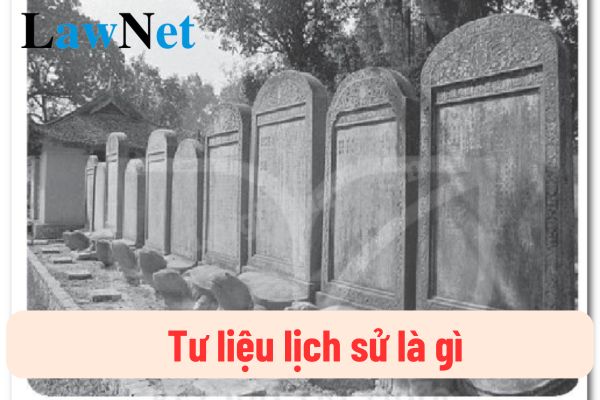Vietnam: What are historical materials? Is being able to use and collect historical material sources one of the outcomes required for primary school students after completing the History and Geography curriculum?
What are historical materials in Vietnam?
Materials are evidence, information, and data collected and recorded to serve research, study, or work. Materials can exist in various forms, ranging from tangible objects like books, newspapers, and photographs, to intangible information such as digital data, audio, and video.
|
What Are Historical Materials? Historical materials are evidence and traces left from the past that help us understand more about life, events, people, and society in history. We can find historical materials in different forms, from everyday living items to documents, images, and architectural works. |
*Note: The above information is for reference only./*

What are historical materials? In Vietnam, is being able to use and collect historical material sources one of the outcomes required for primary school students after completing the History and Geography curriculum? (Image from the Internet)
In Vietnam, is being able to use and collect historical material sources one of the outcomes required for primary school students after completing the History and Geography curriculum?
Under Section 4 of the General Education Program in History and Geography issued together with Circular 32/2018/TT-BGDDT, the outcomes required for primary school students after completing the History curriculum are as follows:
IV. REQUIRED COMPETENCIES
1. Required competencies in essential qualities and general capabilities
The primary history subject contributes to forming and developing in students essential qualities and general capabilities at levels appropriate to the subject and grade as regulated in the comprehensive program.
2. Required competencies in specific skills
The history subject forms and develops in students' historical competence, a distinct expression of scientific competence with components: historical-geographical scientific awareness; understanding history and geography; applying acquired knowledge and skills. The expressions of these competence components are presented in the following table:
| Component Competence | Expression |
| HISTORICAL SCIENTIFIC AWARENESS | - Be able to recount, and identify geographical phenomena, historical events related to spatial-temporal relationships; certain values, and traditions connecting Vietnamese people; some civilizations; and certain difficulties humanity faces. - Be able to describe, and present key features of local, regional, national, global history and geography. - Be able to explain human exploitation, utilization, and protection of nature. |
| UNDERSTANDING HISTORY | - Be capable of observation, document search to gather information or conduct simple investigations to understand historical events and geographical phenomena; able to read maps, charts, simple natural, population maps, and more. - From sources, data, charts, pipelines, maps, draw conclusions about the characteristics and relationships between historical events and geographical subjects, and phenomena. - Expressing personal opinions on specific historical events, figures, and geographical phenomena. - Compare, analyze, and differentiate the diversity of nature, residents, history, and culture across regions; assessing the impact of nature on human productive activities and human impact on nature. |
| APPLYING KNOWLEDGE, SKILLS LEARNED | - Determine the location of a place, and spatial scope on a map; use timelines to illustrate the development process of historical events, and processes. - Utilize charts, data,... to comment on historical events and geographical phenomena. - Be able to collect and utilize history and geography data sources to discuss and present views on simple historical, geographical, and social issues. - Apply learned historical and geographical knowledge to simply analyze, and comment on the impact of a historical event, figure, and geographical phenomenon on current life. - Suggest ideas and implement actions such as resource conservation, environmental protection, and conservation of historical, and cultural relics,... |
Thus, being able to use and collect historical material sources is one of the outcomes required for primary school students after completing the History curriculum.
What are prohibited actions in primary education in Vietnam?
According to Article 22 of the Education Law 2019, prohibited actions in primary education in Vietnam include:
- Disrespect of dignity and honor, committing physical assault towards teachers, staff, labour workers of educational institutions and towards learners.
- Distortion of educational contents.
- Cheating in learning, testing, examination, admission.
- Smoking; alcohol consumption; security and order disruption.
- Forcing students to take extra classes for money.
- Forcing contributions in cash or in kind in the name of educational sponsorship or support.

